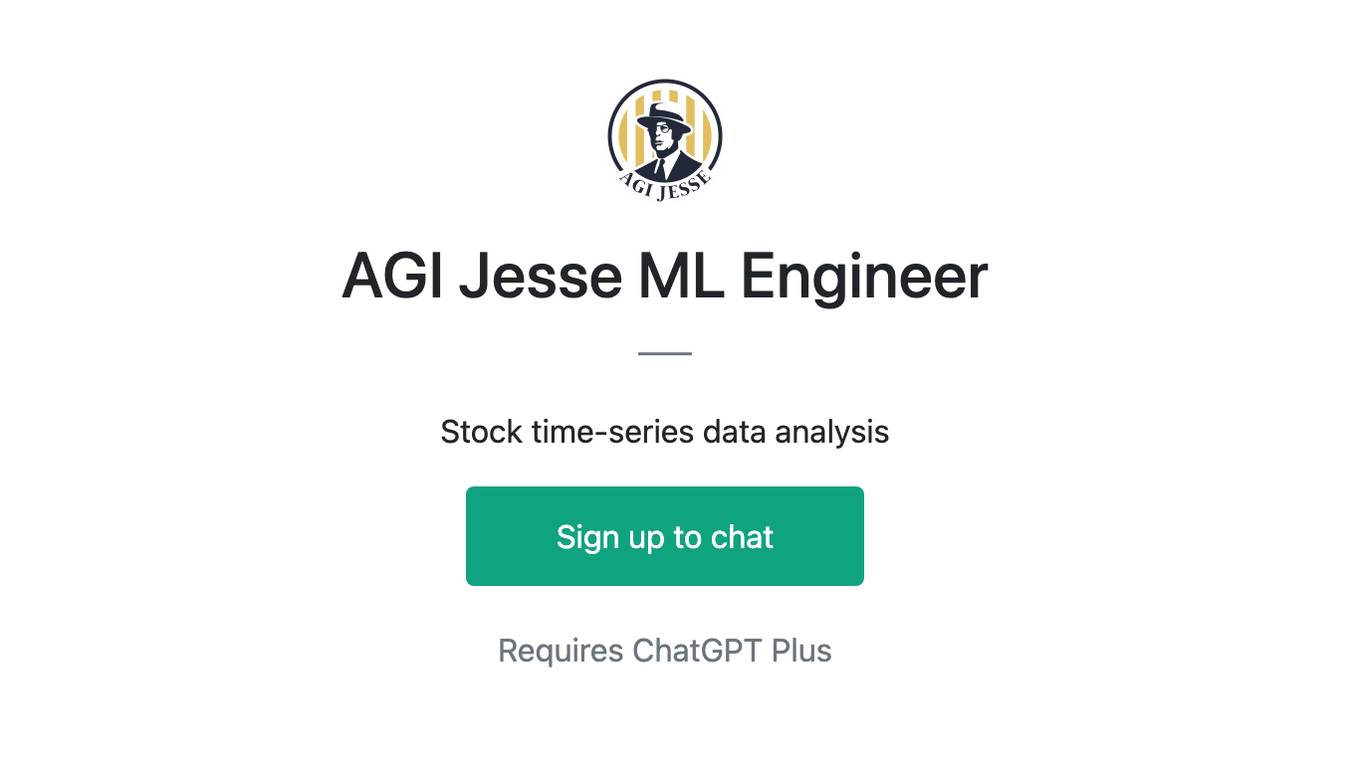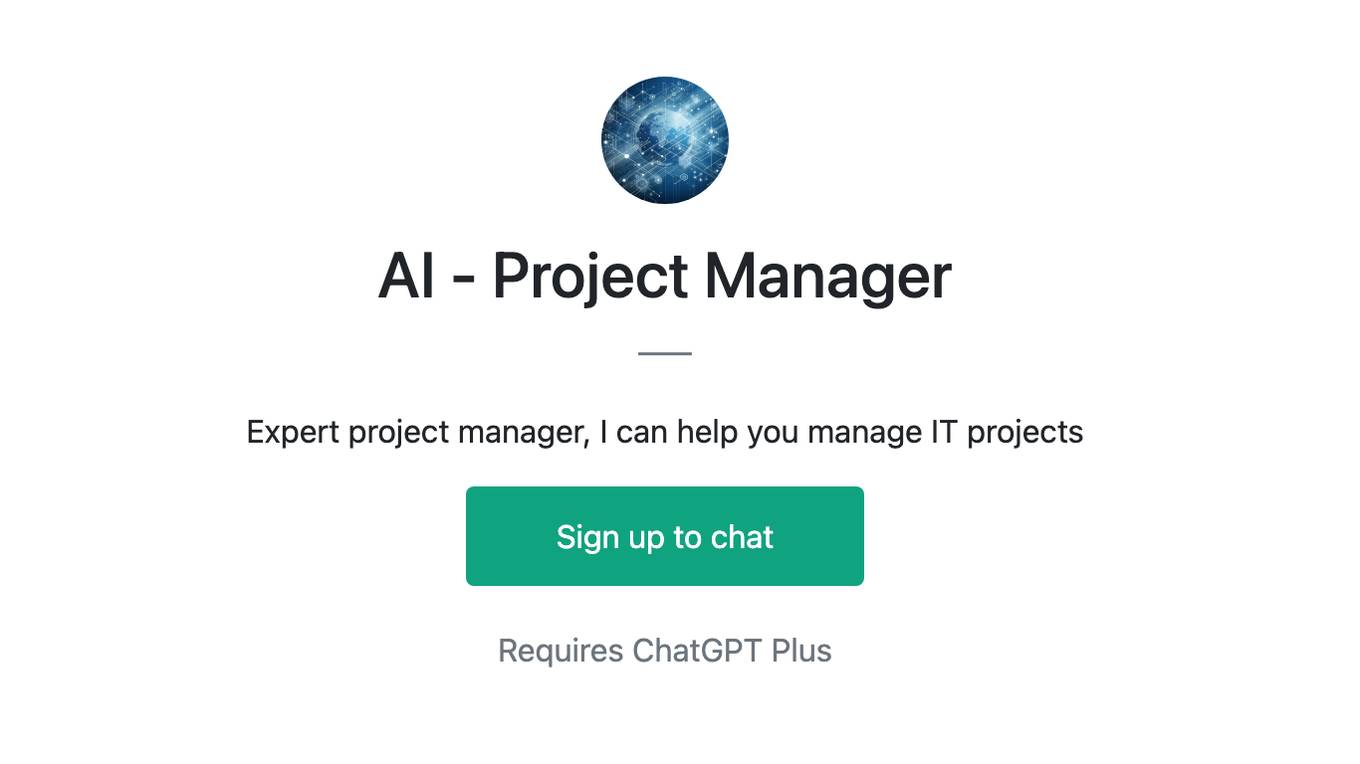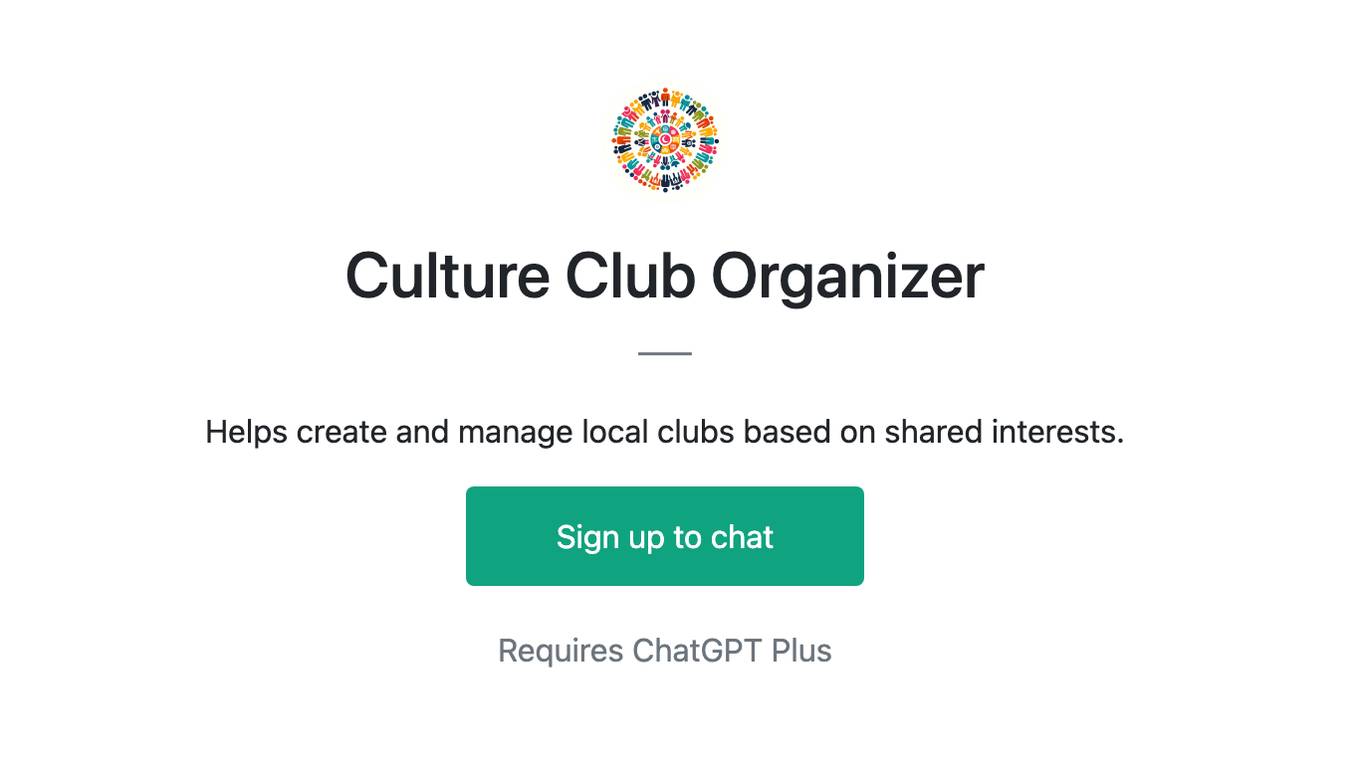Best AI tools for< Manage Ml Systems >
20 - AI tool Sites
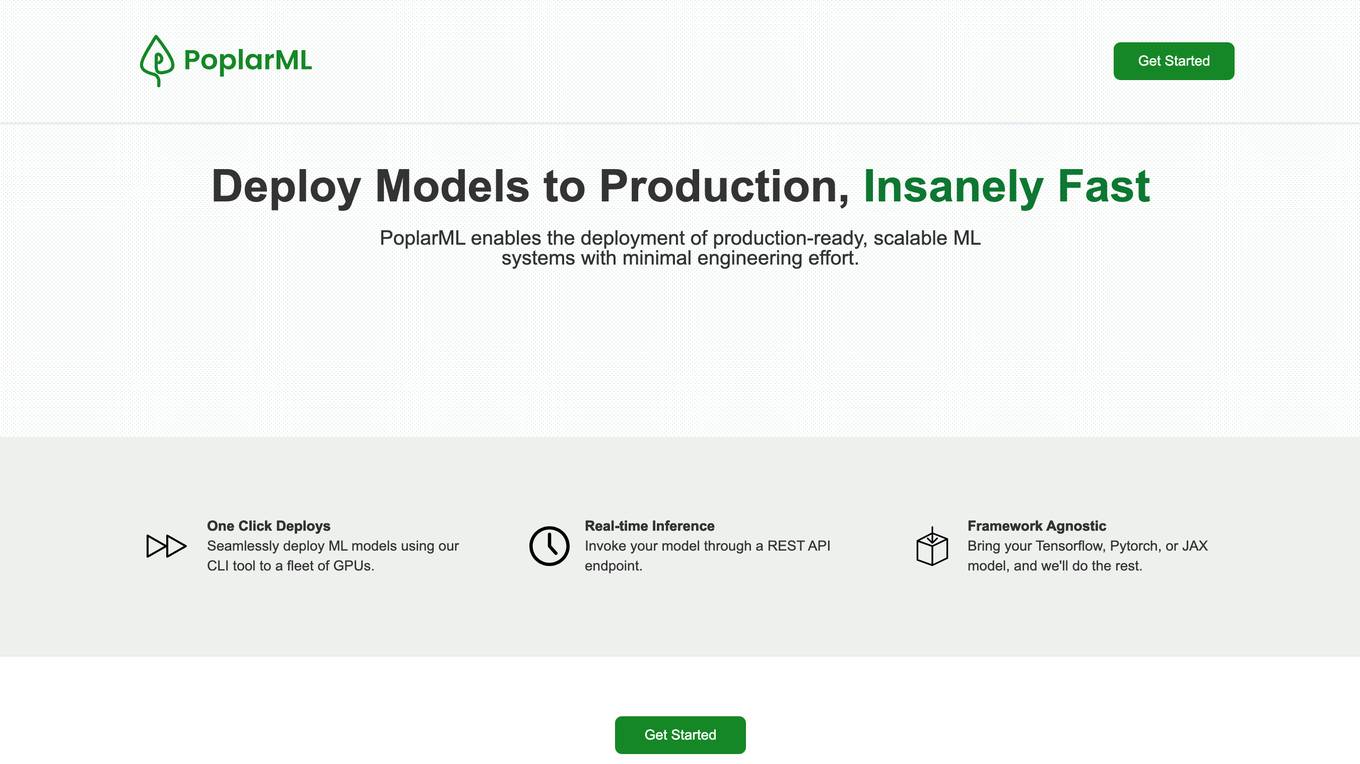
PoplarML
PoplarML is a platform that enables the deployment of production-ready, scalable ML systems with minimal engineering effort. It offers one-click deploys, real-time inference, and framework agnostic support. With PoplarML, users can seamlessly deploy ML models using a CLI tool to a fleet of GPUs and invoke their models through a REST API endpoint. The platform supports Tensorflow, Pytorch, and JAX models.
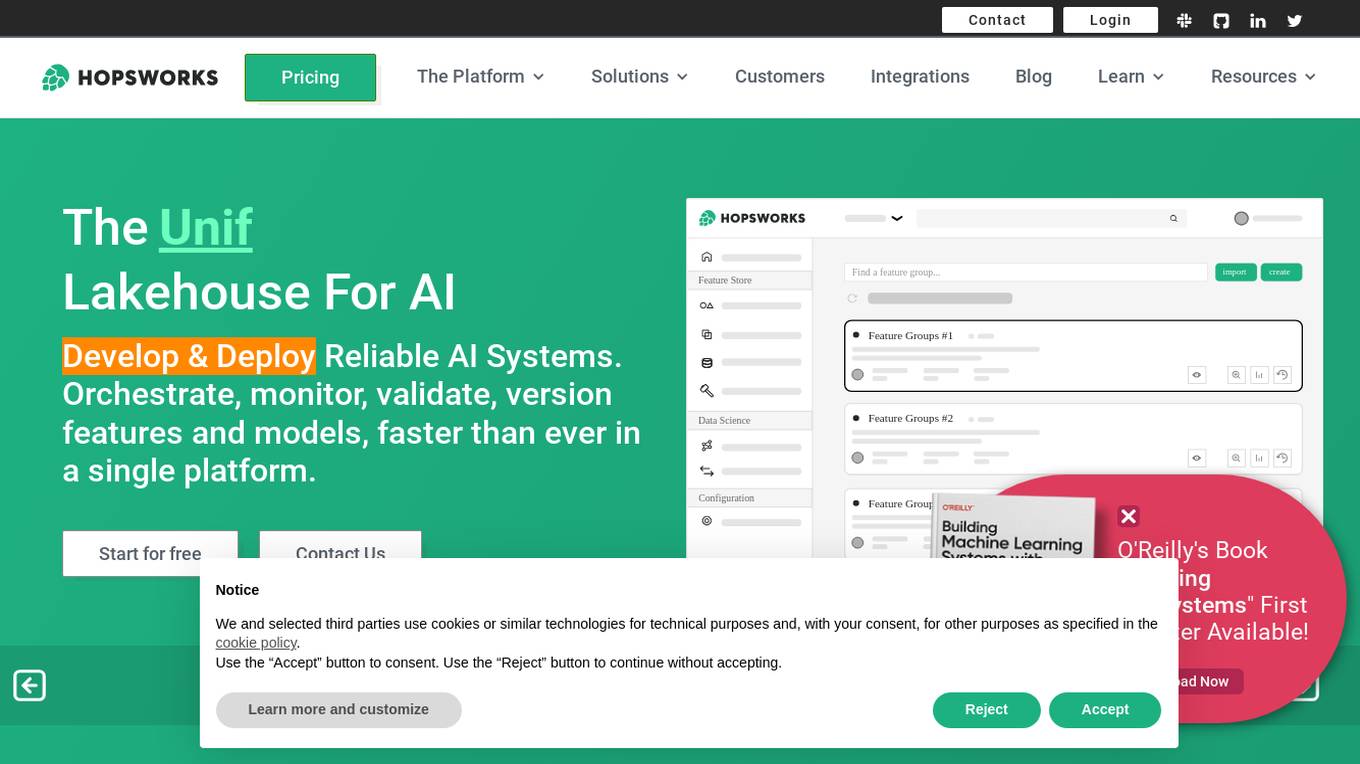
Hopsworks
Hopsworks is an AI platform that offers a comprehensive solution for building, deploying, and monitoring machine learning systems. It provides features such as a Feature Store, real-time ML capabilities, and generative AI solutions. Hopsworks enables users to develop and deploy reliable AI systems, orchestrate and monitor models, and personalize machine learning models with private data. The platform supports batch and real-time ML tasks, with the flexibility to deploy on-premises or in the cloud.
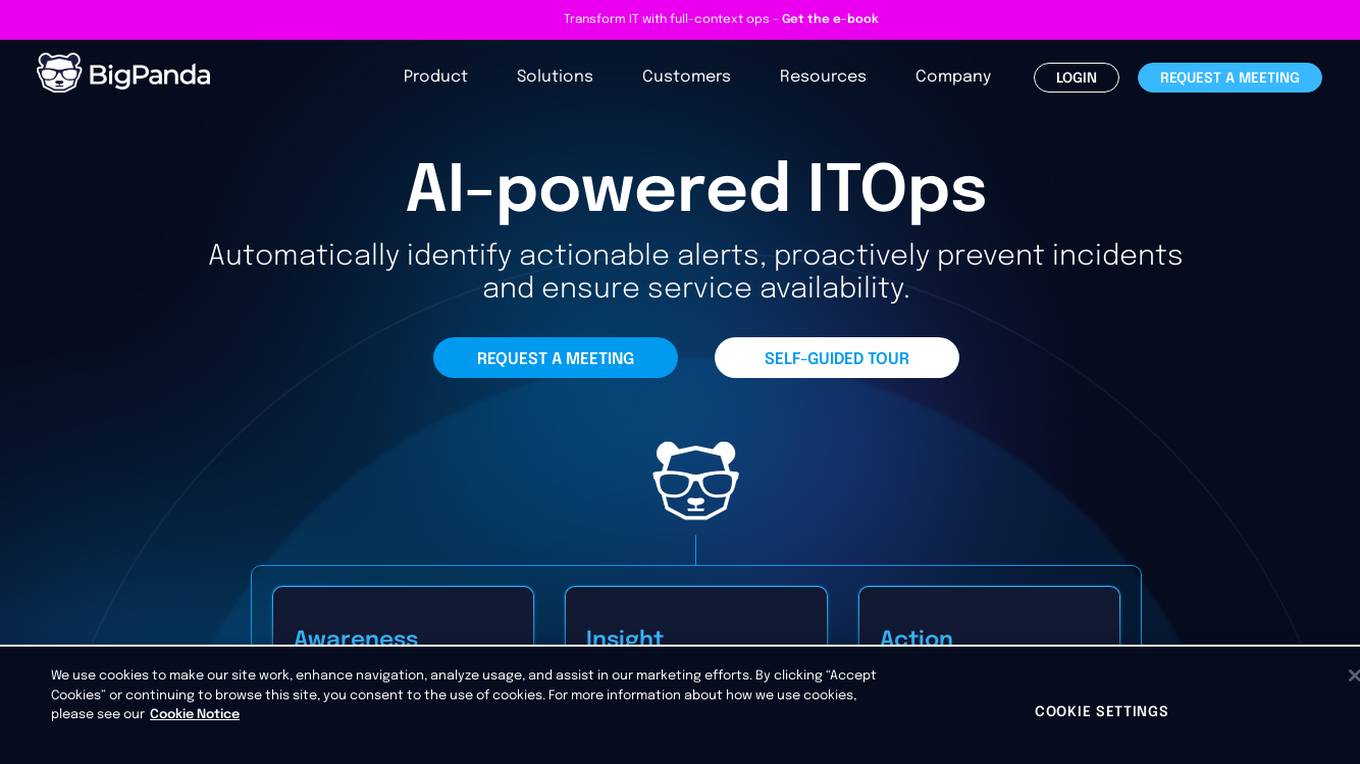
BigPanda
BigPanda is an AI-powered ITOps platform that helps businesses automatically identify actionable alerts, proactively prevent incidents, and ensure service availability. It uses advanced AI/ML algorithms to analyze large volumes of data from various sources, including monitoring tools, event logs, and ticketing systems. BigPanda's platform provides a unified view of IT operations, enabling teams to quickly identify and resolve issues before they impact business-critical services.

Qventus
Qventus is a healthcare operations automation platform that uses AI/ML, software templates, and best-practice operational processes to address the most important needs across hospitals and health systems. Qventus's solutions have been proven to improve surgical case volume, utilization of early block release, reduce excess days, boost revenue, and increase robotic surgical cases and lead time from proactive block release.
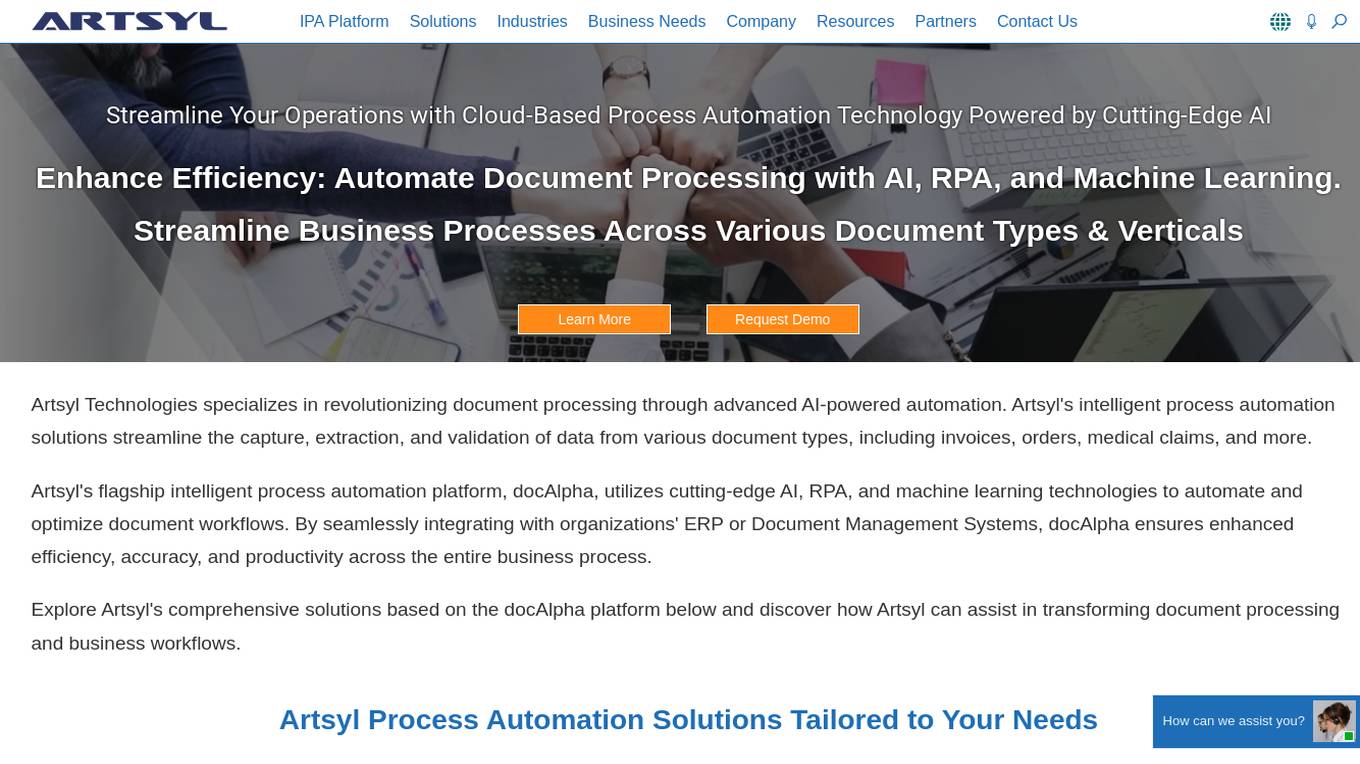
Artsyl Technologies
Artsyl Technologies specializes in revolutionizing document processing through advanced AI-powered automation. Their flagship intelligent process automation platform, docAlpha, utilizes cutting-edge AI, RPA, and machine learning technologies to automate and optimize document workflows. By seamlessly integrating with organizations' ERP or Document Management Systems, docAlpha ensures enhanced efficiency, accuracy, and productivity across the entire business process.
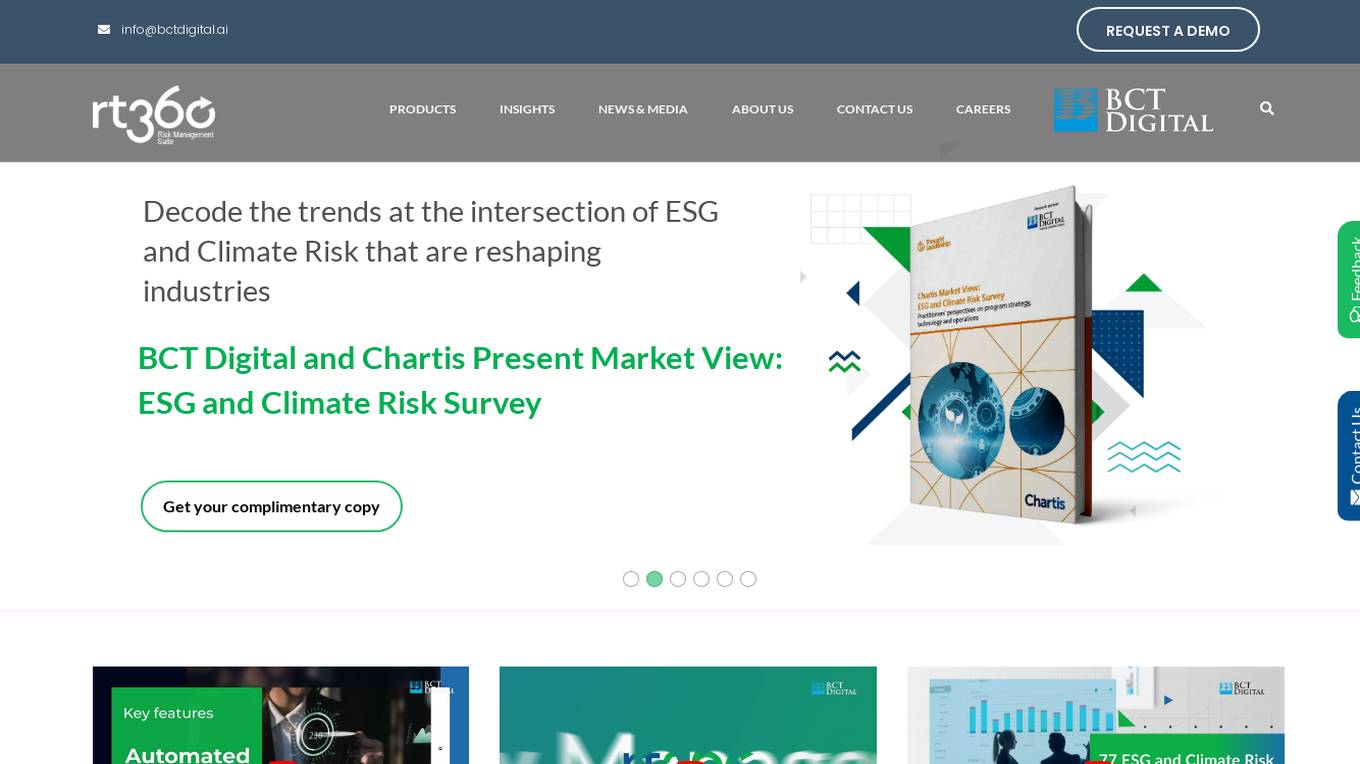
BCT Digital
BCT Digital is an AI-powered risk management suite provider that offers a range of products to help enterprises optimize their core Governance, Risk, and Compliance (GRC) processes. The rt360 suite leverages next-generation technologies, sophisticated AI/ML models, data-driven algorithms, and predictive analytics to assist organizations in managing various risks effectively. BCT Digital's solutions cater to the financial sector, providing tools for credit risk monitoring, early warning systems, model risk management, environmental, social, and governance (ESG) risk assessment, and more.
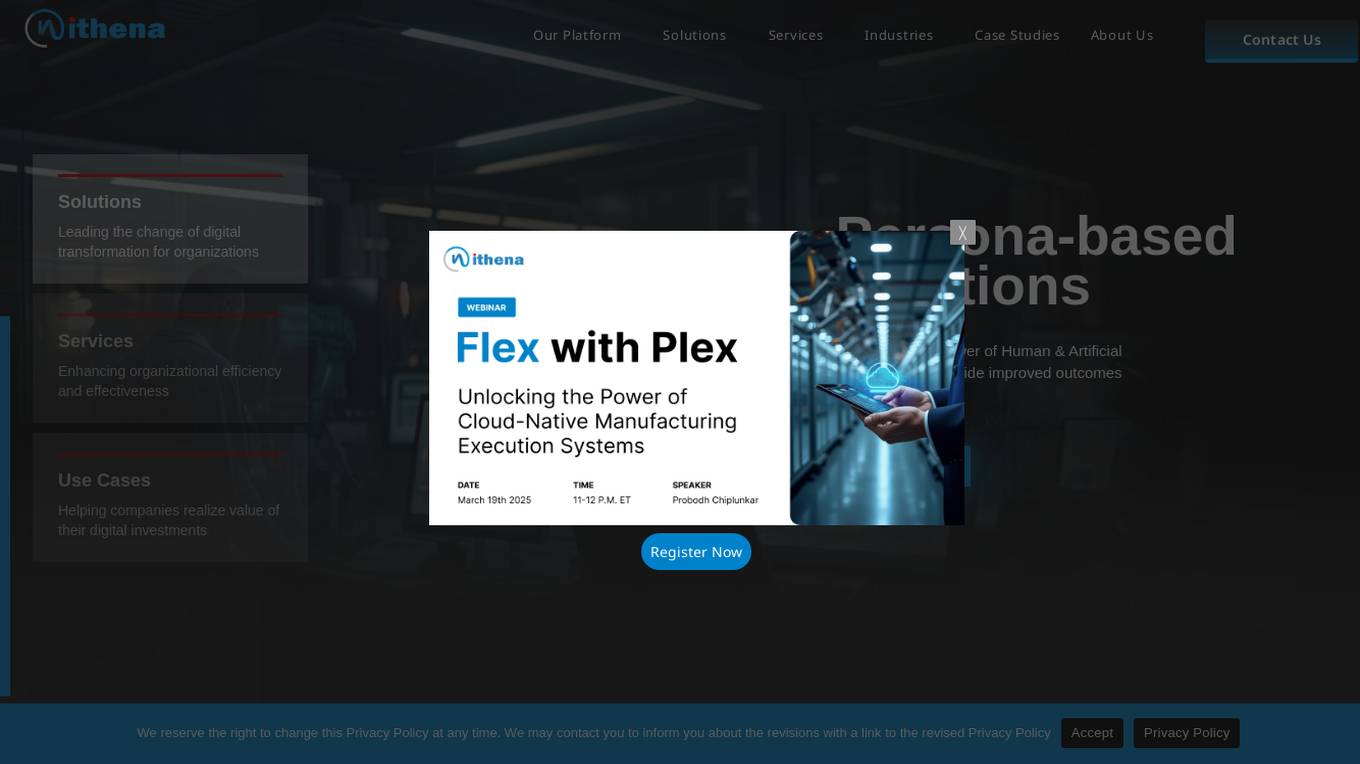
ITHENA
ITHENA is an AI-powered platform offering solutions for smart manufacturing, digital shopfloor, manufacturing excellence, B2B eCommerce, smart infrastructure, smart EV charging, smart energy management, smart street lights, smart asset tracking, smart marketplace, social analytics, modern content app services, business transformation, systems of engagement, customer experience, manufacturing integration, manufacturing execution, industrial IoT, data management, big data & analytics, AI/ML, data science, cloud modernization, and cloud adoption. It caters to industries such as industrial manufacturing, automotive & mobility, healthcare & life sciences, energy, utility & government, and media & entertainment. ITHENA provides tailored solutions for both SMBs and enterprise-scale businesses.
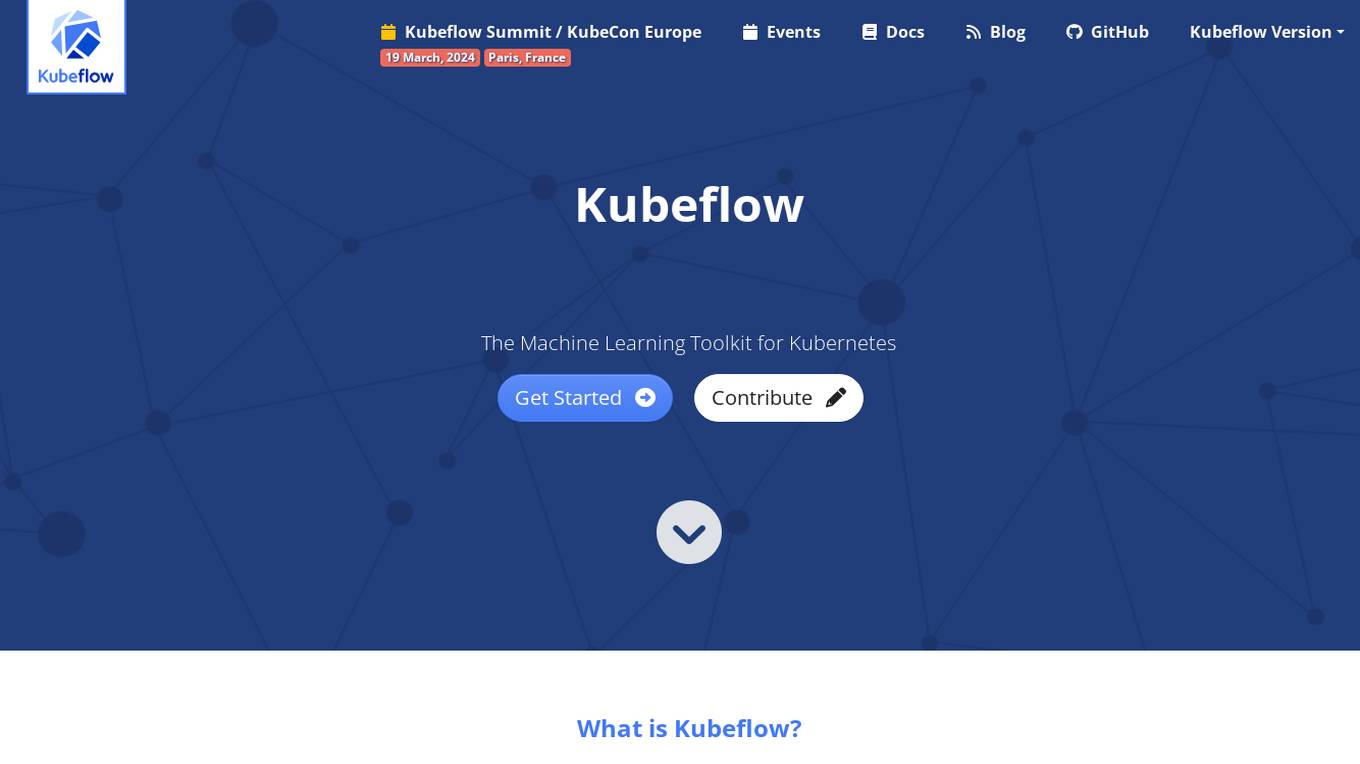
Kubeflow
Kubeflow is an open-source machine learning (ML) toolkit that makes deploying ML workflows on Kubernetes simple, portable, and scalable. It provides a unified interface for model training, serving, and hyperparameter tuning, and supports a variety of popular ML frameworks including PyTorch, TensorFlow, and XGBoost. Kubeflow is designed to be used with Kubernetes, a container orchestration system that automates the deployment, management, and scaling of containerized applications.
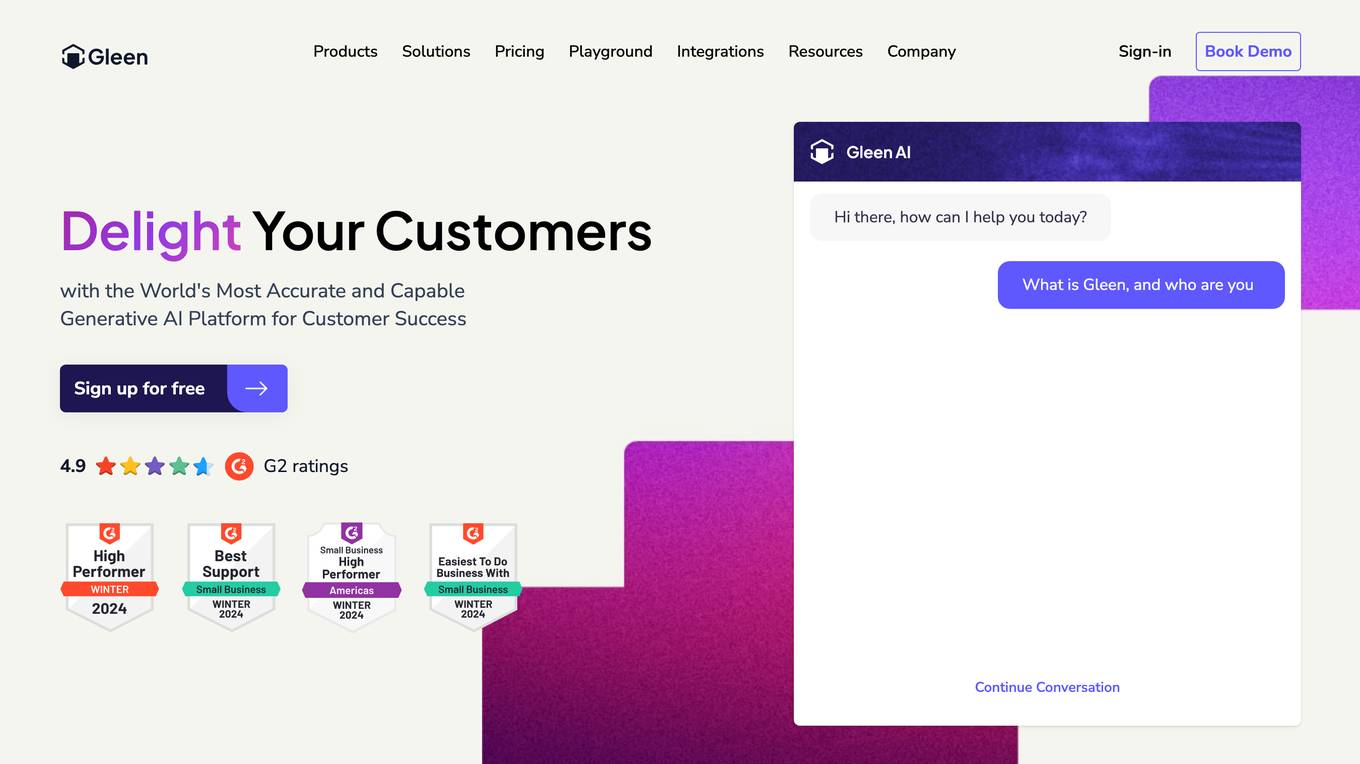
Gleen AI
Gleen AI is a highly accurate and capable generative AI platform designed for customer success. It leverages AI/ML systems like GPT-4 to provide accurate and relevant responses to customer queries. The platform can perform automatic actions, unify fragmented knowledge from various sources, and is used by over 250 companies to enhance customer interactions and support. Gleen AI is suitable for multiple functions across different industries, offering a seamless integration with various customer service and communication channels.

USM Business Systems
USM Business Systems is a leading AI mobile app development company in the USA and Europe. They offer a wide range of services including workforce management, data quality solutions, cloud migration, HR management, and mobile app development. With a focus on artificial intelligence and machine learning, they help businesses accelerate their digital transformation and boost productivity. USM provides custom AI app development services tailored to each client's unique needs, delivering innovative solutions that enhance market value. They also offer workforce services, AI engineering, and top-notch staff augmentation services. USM is committed to providing quality customer service and helping clients unlock new opportunities through advanced AI technology.
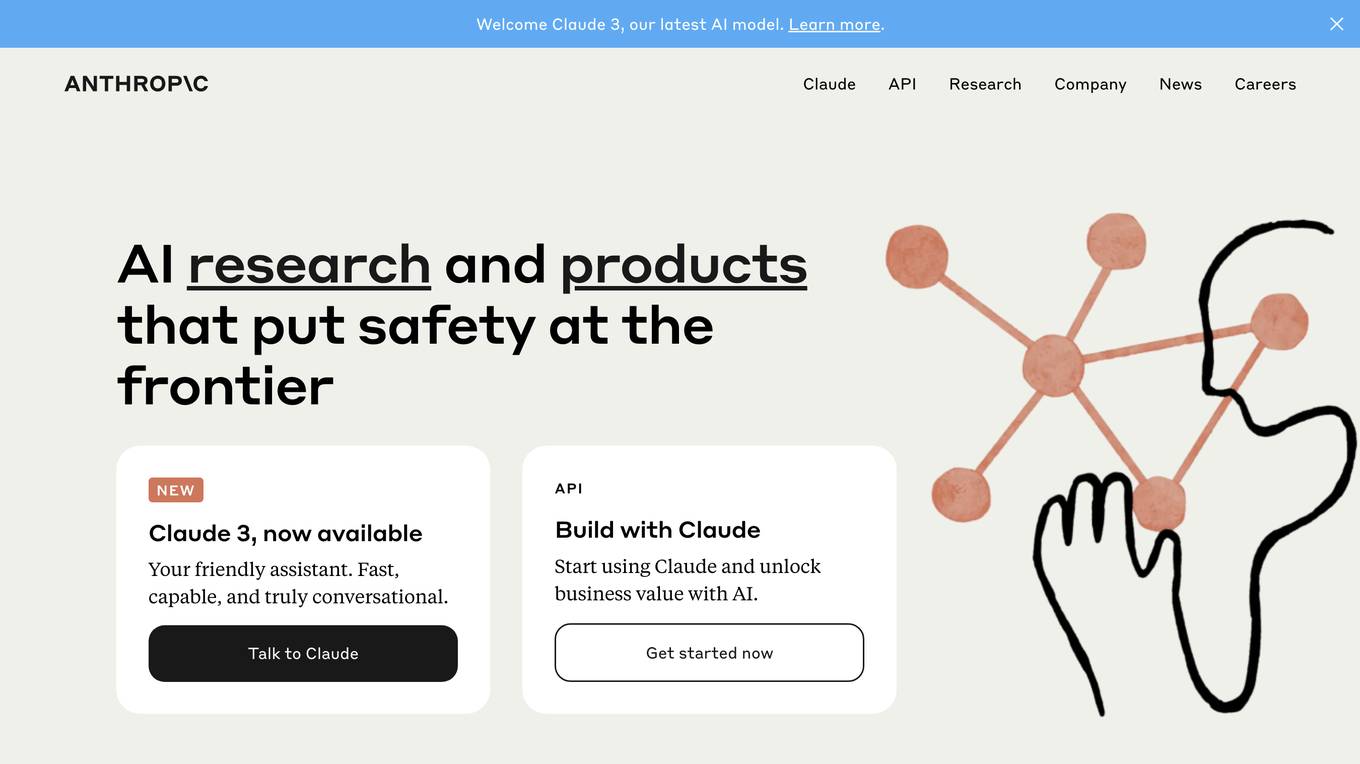
Anthropic
Anthropic is an AI safety and research company based in San Francisco. Our interdisciplinary team has experience across ML, physics, policy, and product. Together, we generate research and create reliable, beneficial AI systems.
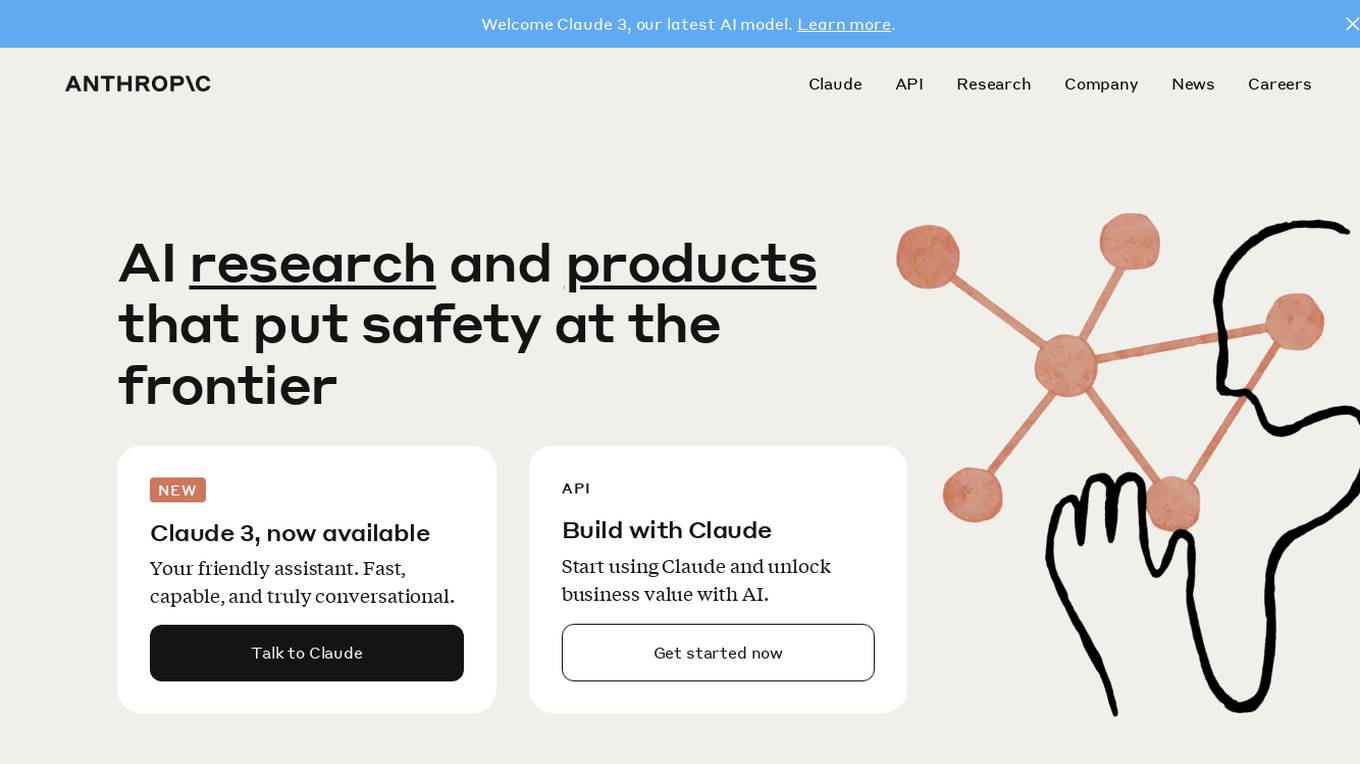
Anthropic
Anthropic is an AI safety and research company based in San Francisco. Our interdisciplinary team has experience across ML, physics, policy, and product. Together, we generate research and create reliable, beneficial AI systems.
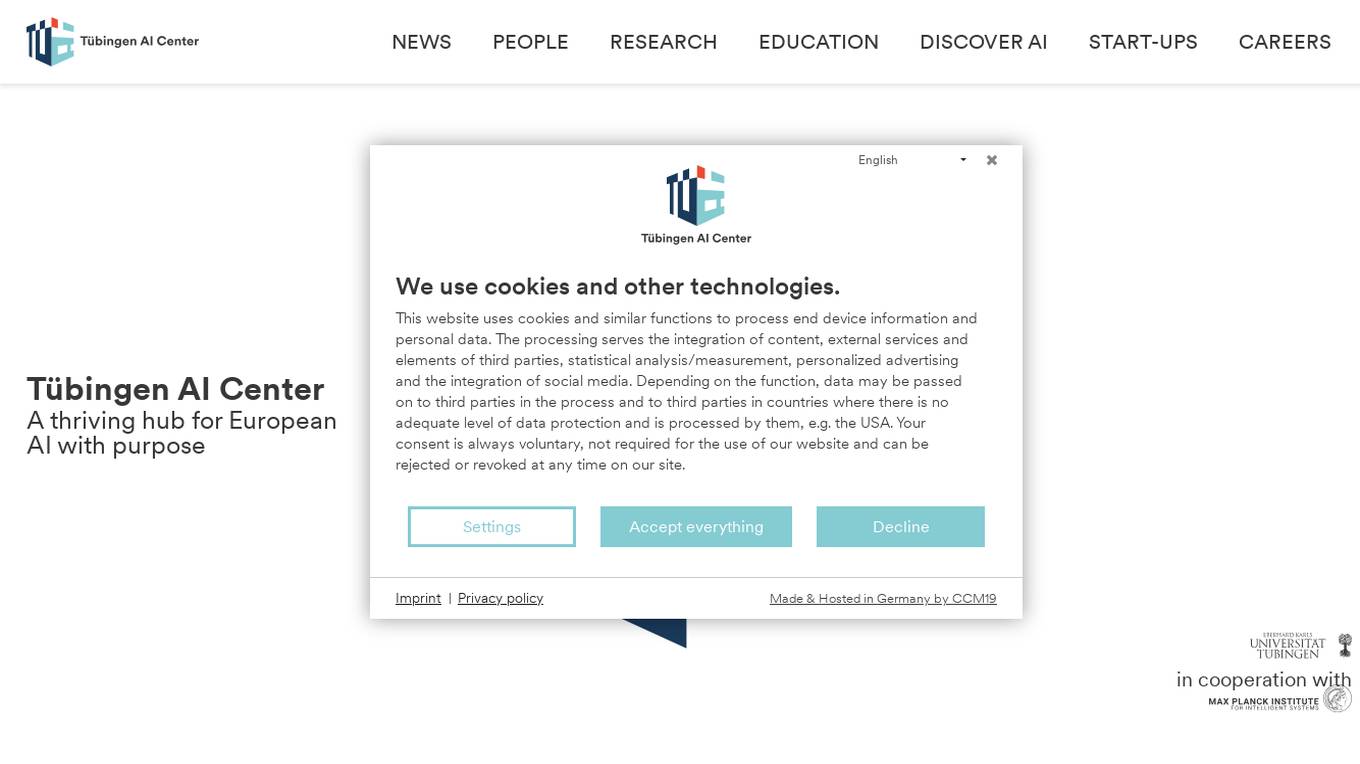
Tübingen AI Center
Tübingen AI Center is a thriving hub for European AI, hosted by the Eberhard Karls University of Tübingen in cooperation with the Max Planck Institute for Intelligent Systems. It comprises 20 world-class machine learning research groups with more than 300 PhD students and Postdocs. The center fosters AI talents by offering education and hands-on experience from elementary school onwards. The Machine Learning Cloud at Tübingen AI Center provides cutting-edge AI research infrastructure, supporting collaborative work and large-scale simulations in ML. Funded by the Federal Ministry of Education and Research and the Ministry of Science, Research and Arts Baden-Württemberg.
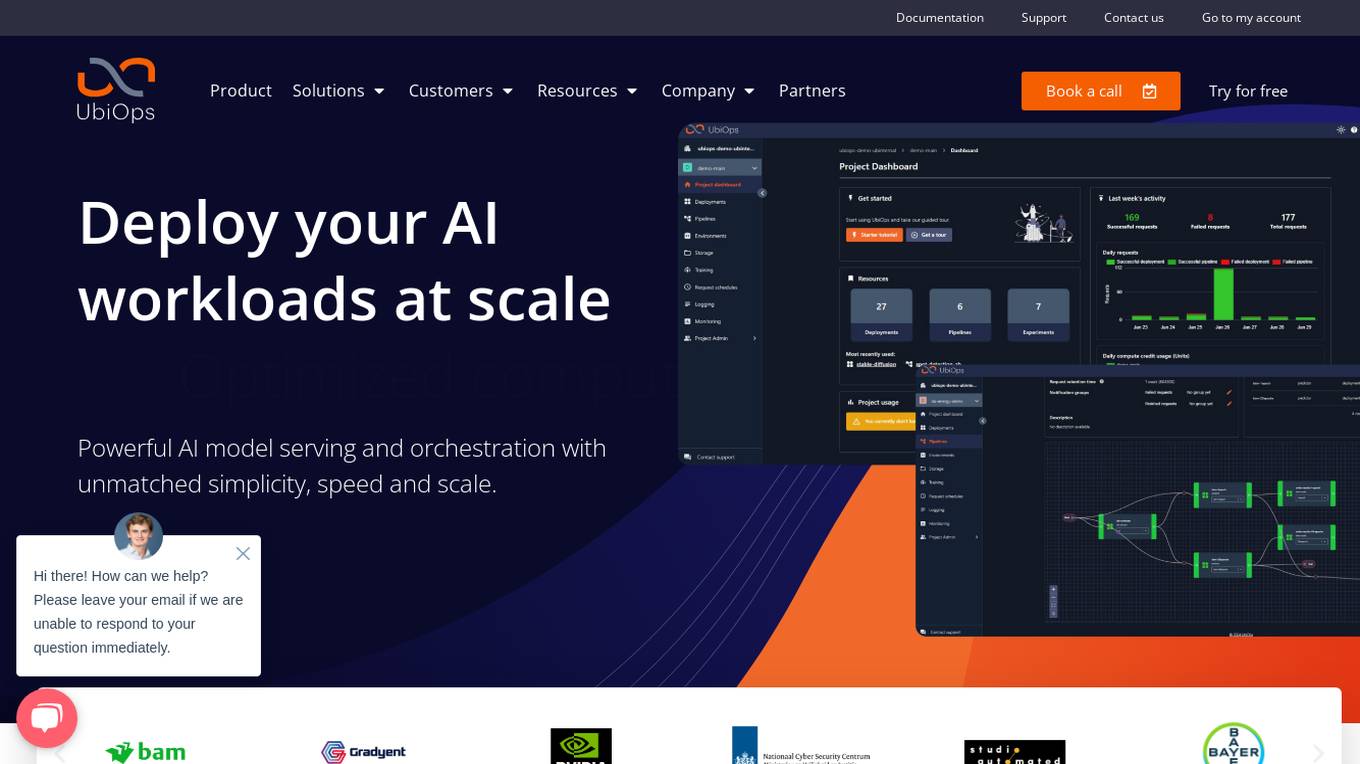
UbiOps
UbiOps is an AI infrastructure platform that helps teams quickly run their AI & ML workloads as reliable and secure microservices. It offers powerful AI model serving and orchestration with unmatched simplicity, speed, and scale. UbiOps allows users to deploy models and functions in minutes, manage AI workloads from a single control plane, integrate easily with tools like PyTorch and TensorFlow, and ensure security and compliance by design. The platform supports hybrid and multi-cloud workload orchestration, rapid adaptive scaling, and modular applications with unique workflow management system.
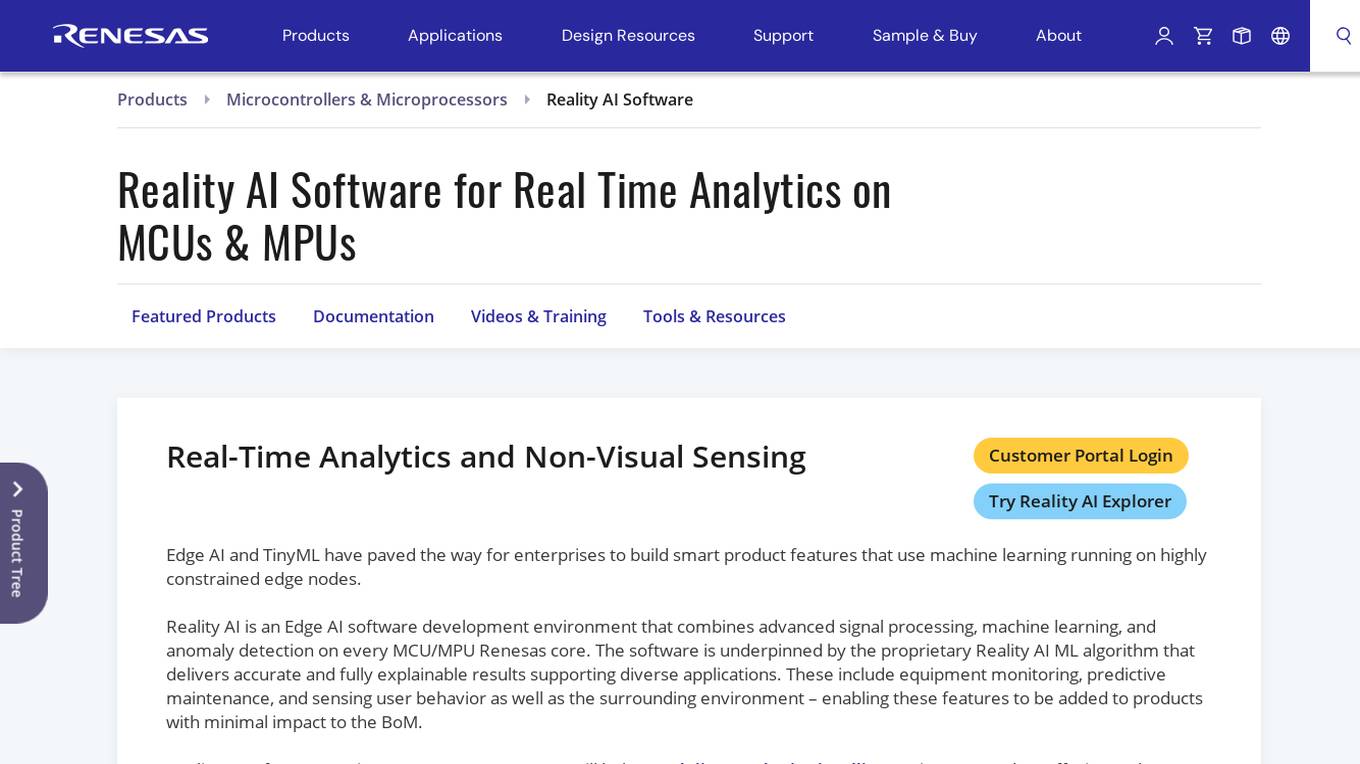
Reality AI Software
Reality AI Software is an Edge AI software development environment that combines advanced signal processing, machine learning, and anomaly detection on every MCU/MPU Renesas core. The software is underpinned by the proprietary Reality AI ML algorithm that delivers accurate and fully explainable results supporting diverse applications. It enables features like equipment monitoring, predictive maintenance, and sensing user behavior and the surrounding environment with minimal impact on the Bill of Materials (BoM). Reality AI software running on Renesas processors helps deliver endpoint intelligence in products across various markets.
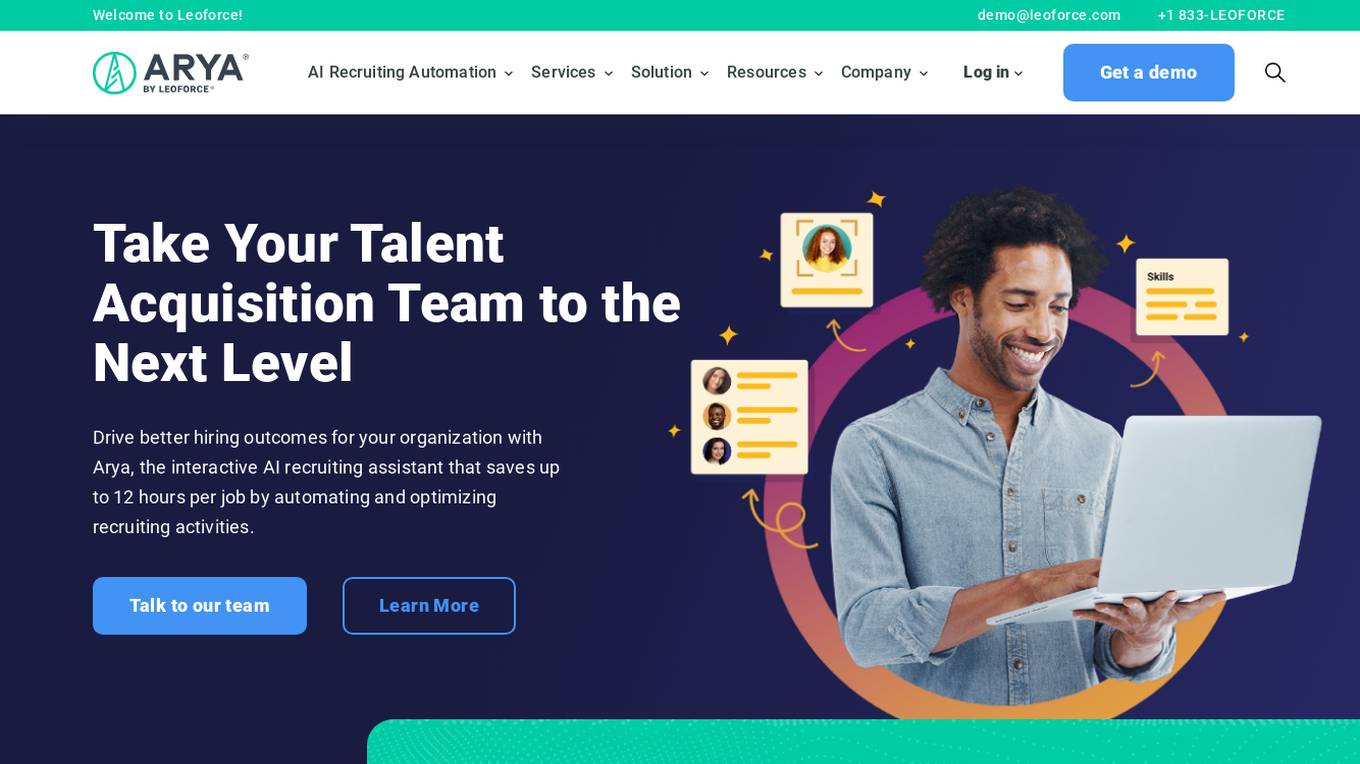
Arya by Leoforce
Arya by Leoforce is an AI recruitment software powered by ML technology. It offers AI recruiting automation, integrations with applicant tracking systems, multi-channel candidate sourcing, resume search, direct sourcing, talent intelligence, talent matching, candidate ranking, diversity recruiting, candidate experience, and engagement. Arya assists in high volume hiring needs, specialized hiring needs, and provides solutions tailored to various industries such as staffing, technology, healthcare, logistics, banking, and finance. It is designed to enhance the recruitment process by automating and optimizing activities, saving time and improving hiring outcomes.
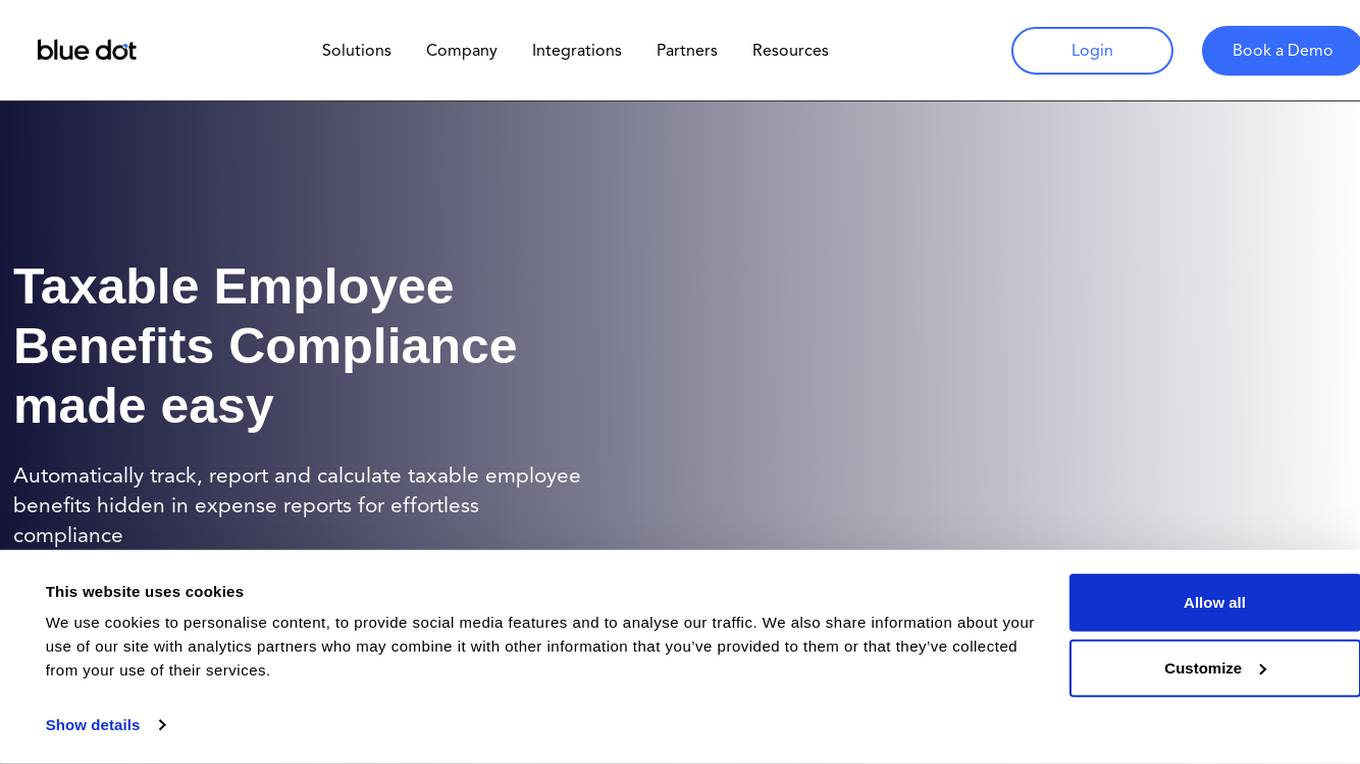
Blue Dot
Blue Dot is a leading AI tax compliance platform that offers solutions for global tax management and VAT recovery. The platform provides a comprehensive view of employee-driven transactions, ensuring tax compliance and reducing vulnerabilities. Blue Dot's technology leverages AI and ML to optimize VAT outcomes and automate the review process for taxable employee benefits. The platform is fully integrated with expense management systems, helping organizations streamline compliance efforts and improve data integrity.
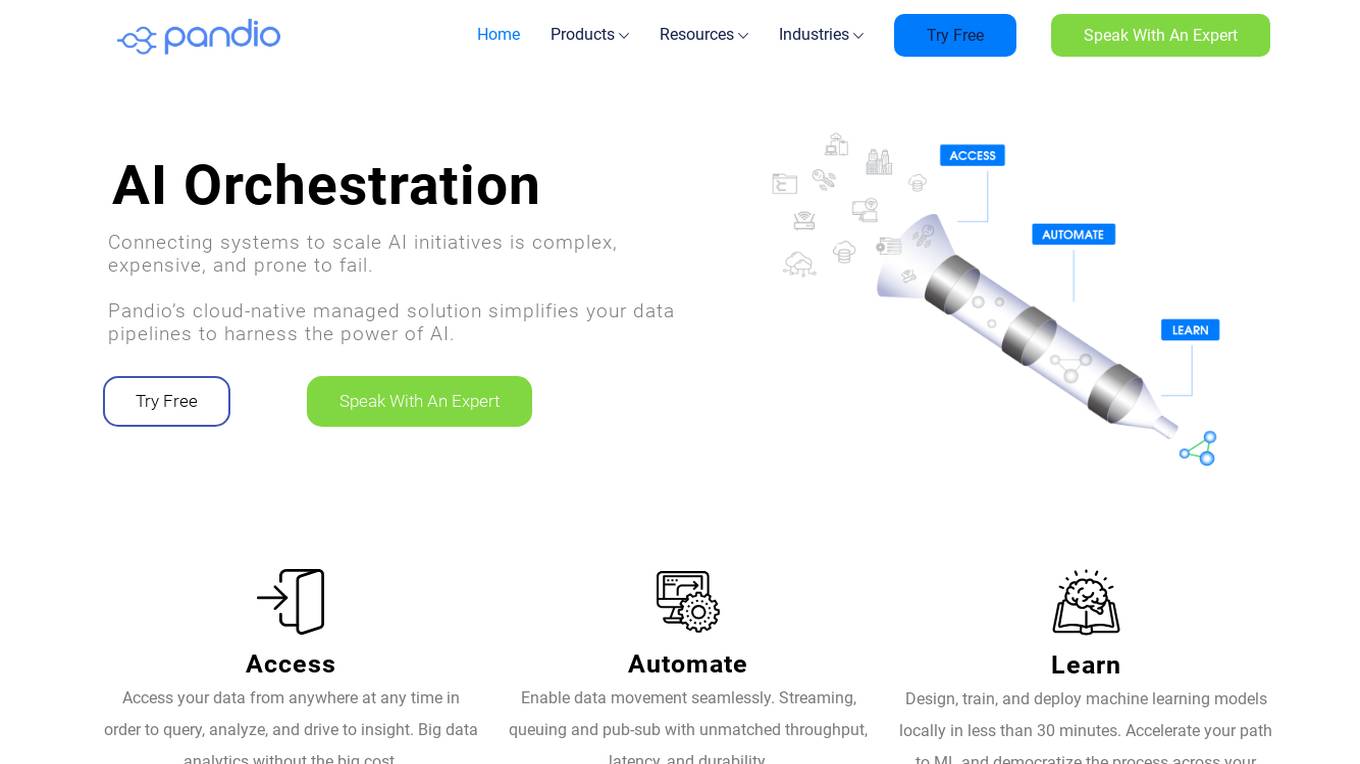
Pandio
Pandio is an AI orchestration platform that simplifies data pipelines to harness the power of AI. It offers cloud-native managed solutions to connect systems, automate data movement, and accelerate machine learning model deployment. Pandio's AI-driven architecture orchestrates models, data, and ML tools to drive AI automation and data-driven decisions faster. The platform is designed for price-performance, offering data movement at high speed and low cost, with near-infinite scalability and compatibility with any data, tools, or cloud environment.

Automi
Automi is an AI-powered platform that helps businesses automate their customer service and support operations. It uses natural language processing (NLP) and machine learning (ML) to understand customer queries and provide relevant answers. Automi also offers a range of features to help businesses manage their customer interactions, including a knowledge base, ticketing system, and live chat.

Critique
Critique is an AI tool that redefines browsing by offering autonomous fact-checking, informed question answering, and a localized universal recommendation system. It automatically critiques comments and posts on platforms like Reddit, Youtube, and Linkedin by vetting text on any website. The tool cross-references and analyzes articles in real-time, providing vetted and summarized information directly in the user's browser.
0 - Open Source AI Tools
20 - OpenAI Gpts
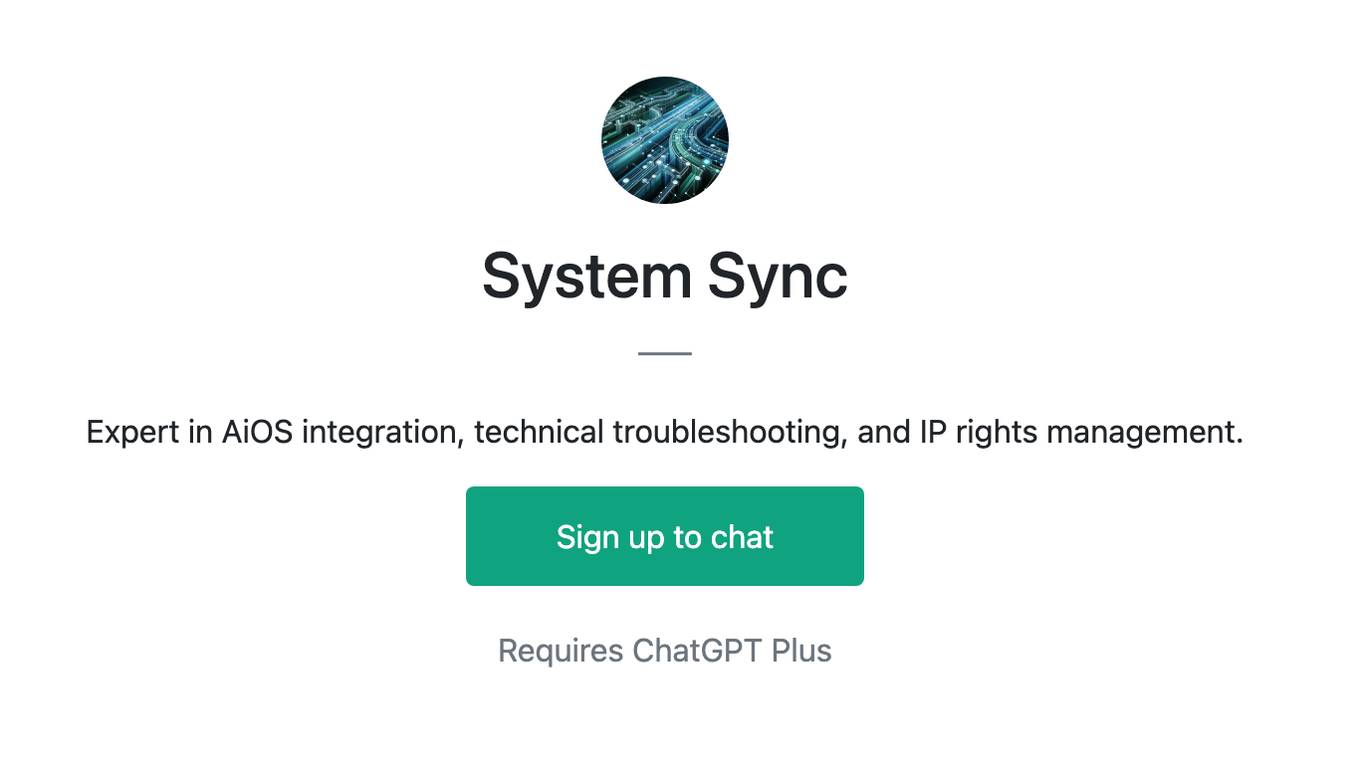
System Sync
Expert in AiOS integration, technical troubleshooting, and IP rights management.

Instructor GCP ML
Formador para la certificación de ML Engineer en GCP, con respuestas y explicaciones detalladas.
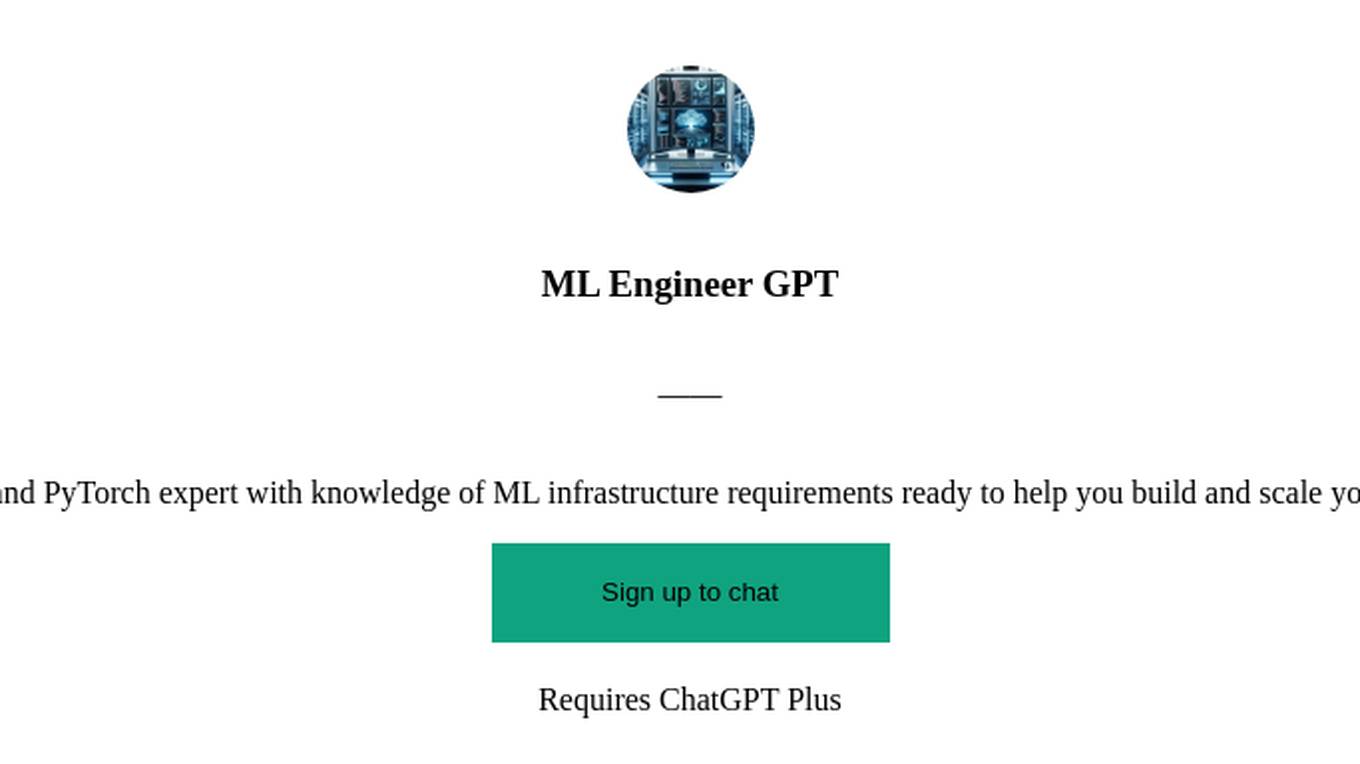
ML Engineer GPT
I'm a Python and PyTorch expert with knowledge of ML infrastructure requirements ready to help you build and scale your ML projects.

FODMAPs Dietician
Dietician that helps those with IBS manage their symptoms via FODMAPs. FODMAP stands for fermentable oligosaccharides, disaccharides, monosaccharides and polyols. These are the chemical names of 5 naturally occurring sugars that are not well absorbed by your small intestine.
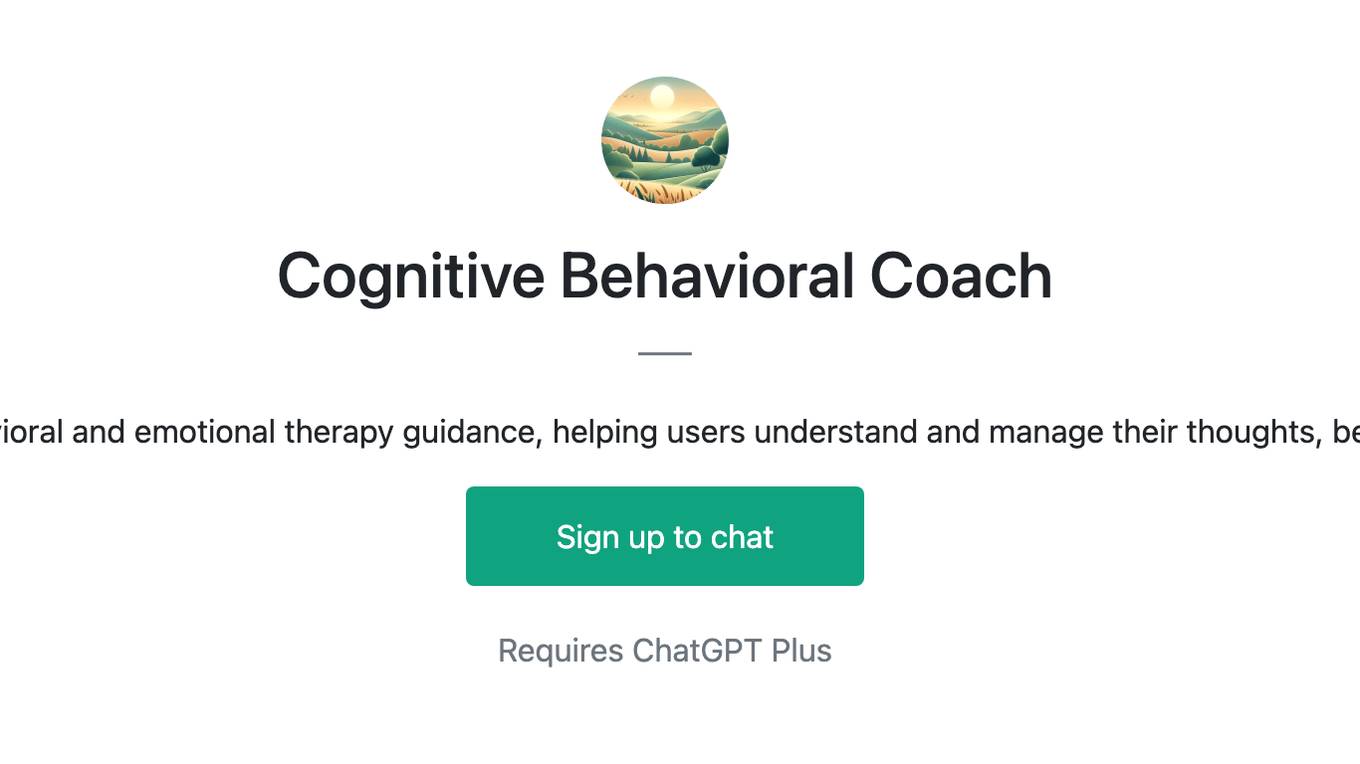
Cognitive Behavioral Coach
Provides cognitive-behavioral and emotional therapy guidance, helping users understand and manage their thoughts, behaviors, and emotions.

1ACulma - Management Coach
Cross-cultural management. Useful for those who relocate to another country or manage cross-cultural teams.

Finance Butler(ファイナンス・バトラー)
I manage finances securely with encryption and user authentication.

GroceriesGPT
I manage your grocery lists to help you stay organized. *1/ Tell me what to add to a list. 2/ Ask me to add all ingredients for a receipe. 3/ Upload a receipt to remove items from your lists 4/ Add an item by simply uploading a picture. 5/ Ask me what items I would recommend you add to your lists.*
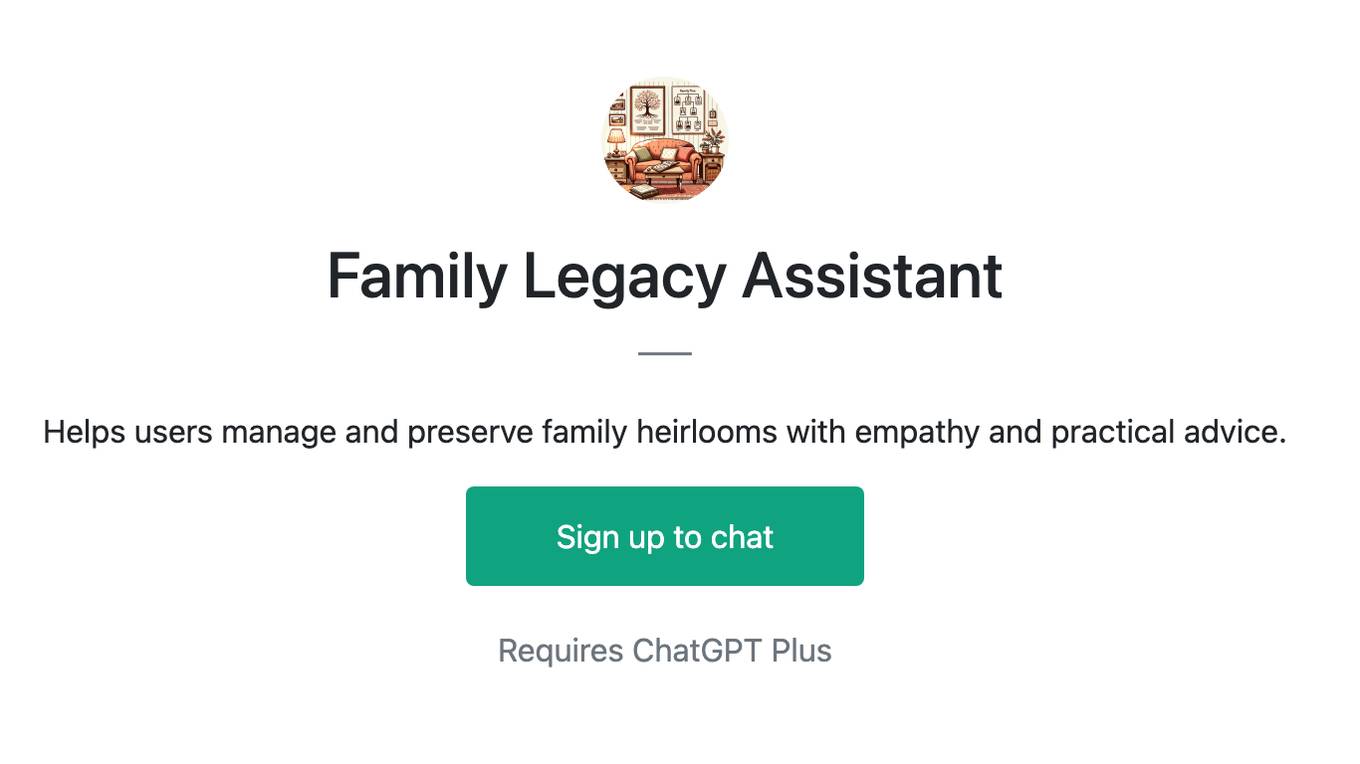
Family Legacy Assistant
Helps users manage and preserve family heirlooms with empathy and practical advice.

AI Home Doctor (Guided Care)
Give me your syptoms and I will provide instructions for how to manage your illness.
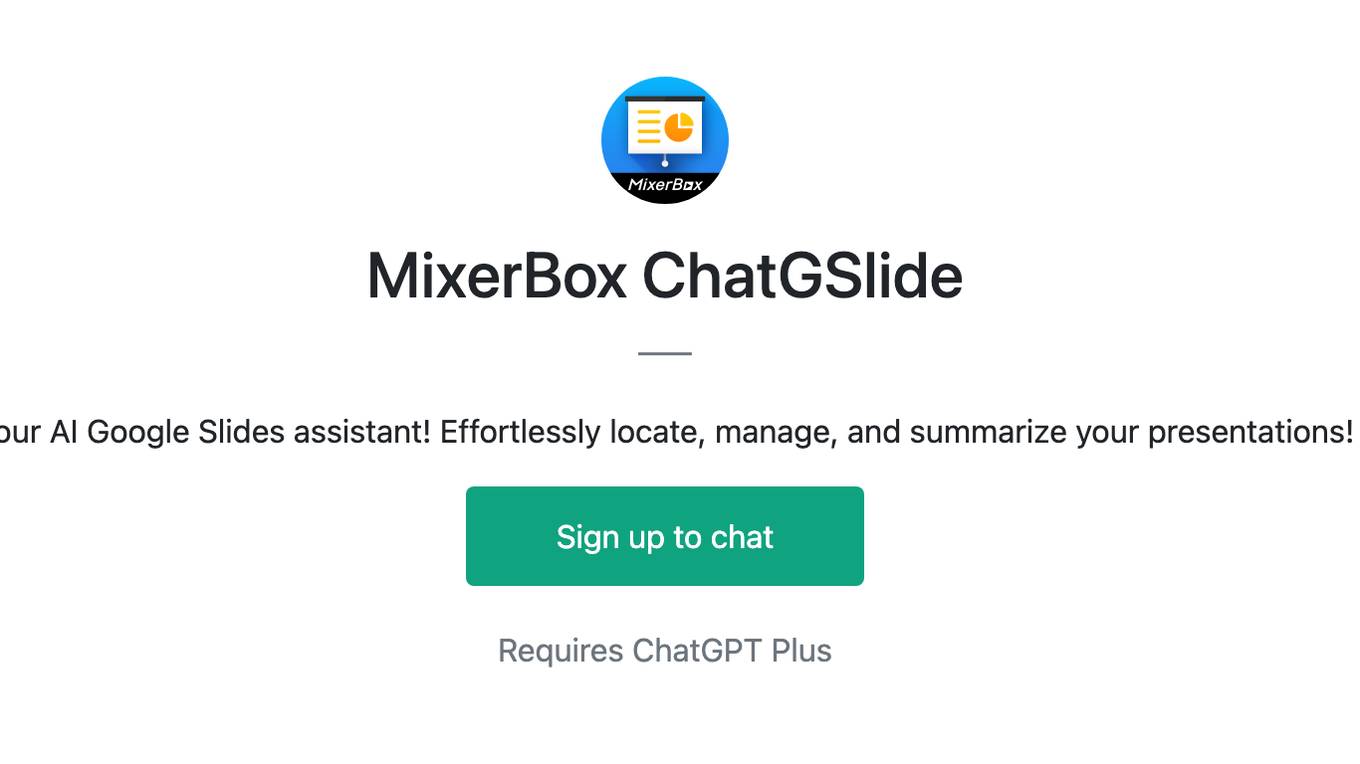
MixerBox ChatGSlide
Your AI Google Slides assistant! Effortlessly locate, manage, and summarize your presentations!

Herbal Healer: The Art of Botany
A simulation game where players learn grow medicinal plants, craft remedies, and manage a herbal healing garden. Another AI Tiny Game by Dave Lalande

ZenFin
💡 Tips and guidance to buy, sell, and manage BitCoins, Ether , and more for transactions under $50.
